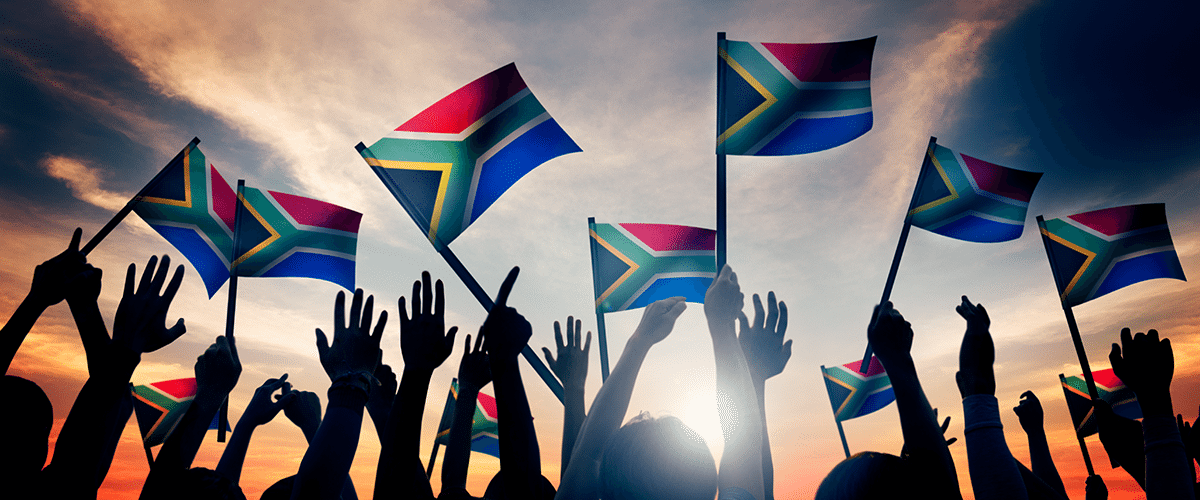[vc_row][vc_column][vc_column_text]
After investigating the therapeutic effects of cannabis, South Africa’s Medicines Control Council and the Department of Health in Committee announced it would legalize marijuana for medical purposes early next year.
Legalized medical marijuana is expected to come to South Africa in early 2017, after South Africa’s Medicines Control Council announced it has plans to recognize cannabis as a prescription drug instead of a banned substance.
Medicines Control Council registrar Dr. Joey Gouws recently told the National Assembly Committee that the regulation changes are expected to be published by February and then implemented as soon as April. The MCC will begin by issuing permits for cannabis cultivation and product manufacturing. Eventually, patients would be able to have access to cannabis to help with diseases including cancer, HIV and AIDS, and multiple sclerosis.
Dr. Mario Oriani-Ambrosini had proposed a Medicinal Innovation Bill, which would have legalized the medical use of cannabis, in 2014 while battling terminal cancer. After his death, the bill was reintroduced by chief whip of the Inkatha Freedom Party (IFP), Narend Singh.
Singh applauded the MCC’s announcement of the intention to legalize medical cannabis in a statement.
“Today I saw MP’s across the political spectrum join together for the common good of all South Africans. The introduction of Dr. Oriani-Ambrosini’s Bill in 2014 galvanised a concerted effort by all stakeholders, the result being that we will shortly have a working blueprint and regulatory framework for access to medicinal cannabis in South Africa. We look forward to seeing that happen.”
Oriani-Ambrosini’s introduction of the Medical Innovation Bill prompted a two-year period of investigation and research into the therapeutic effects of medicinal cannabis. The IFP has said they believe cannabis is therapeutically beneficial for treating pain and that legalizing cannabis could provide an affordable healthcare option for people on limited incomes.
“What I would like to see is that cannabis products should be made available to all, including the poor,” Singh told South African news site IOL. “At the moment, these drugs are available on the black market and they are very expensive. That means many poor South Africans don’t have access to these drugs despite their pain-relief benefits for chronic pain.”
Approximately 3,000 protesters marched in Cape Town earlier this year in support of medical and recreational marijuana legalization.[/vc_column_text][/vc_column][/vc_row][vc_row][vc_column][vc_single_image image=”17365″ img_size=”1200×250″ onclick=”custom_link” img_link_target=”_blank” link=”https://www.medicalmarijuanainc.com/overview-of-medical-marijuana-research/”][/vc_column][/vc_row][vc_row][vc_column][vc_column_text]The change in law would entail amending the already-enacted Medicines and Related Substances Act to reschedule cannabis from a Schedule 7, the category for banned substances, to a Schedule 6, reserved for prescription drugs. The act does currently permit the use of cannabis for research purposes, but as of now it remains illegal to use for adult use or medicinal purposes.
“This heralds a great step forward for public access and research into the use of medicinal cannabis,” said Singh. I feel a great sense of relief. I must thank the Department for taking up this issue with such passionate concern for our people. What matters now is that the Department ensures that access to medicinal cannabis will not be restricted to the rich, but that anyone who needs it will be able to afford it, and get it.”
MCC council member Professor Shabir Banoo told IOL that discussions with the various stakeholders involved in amending the Medicines and Related Substances Act are already underway.[/vc_column_text][/vc_column][/vc_row]






